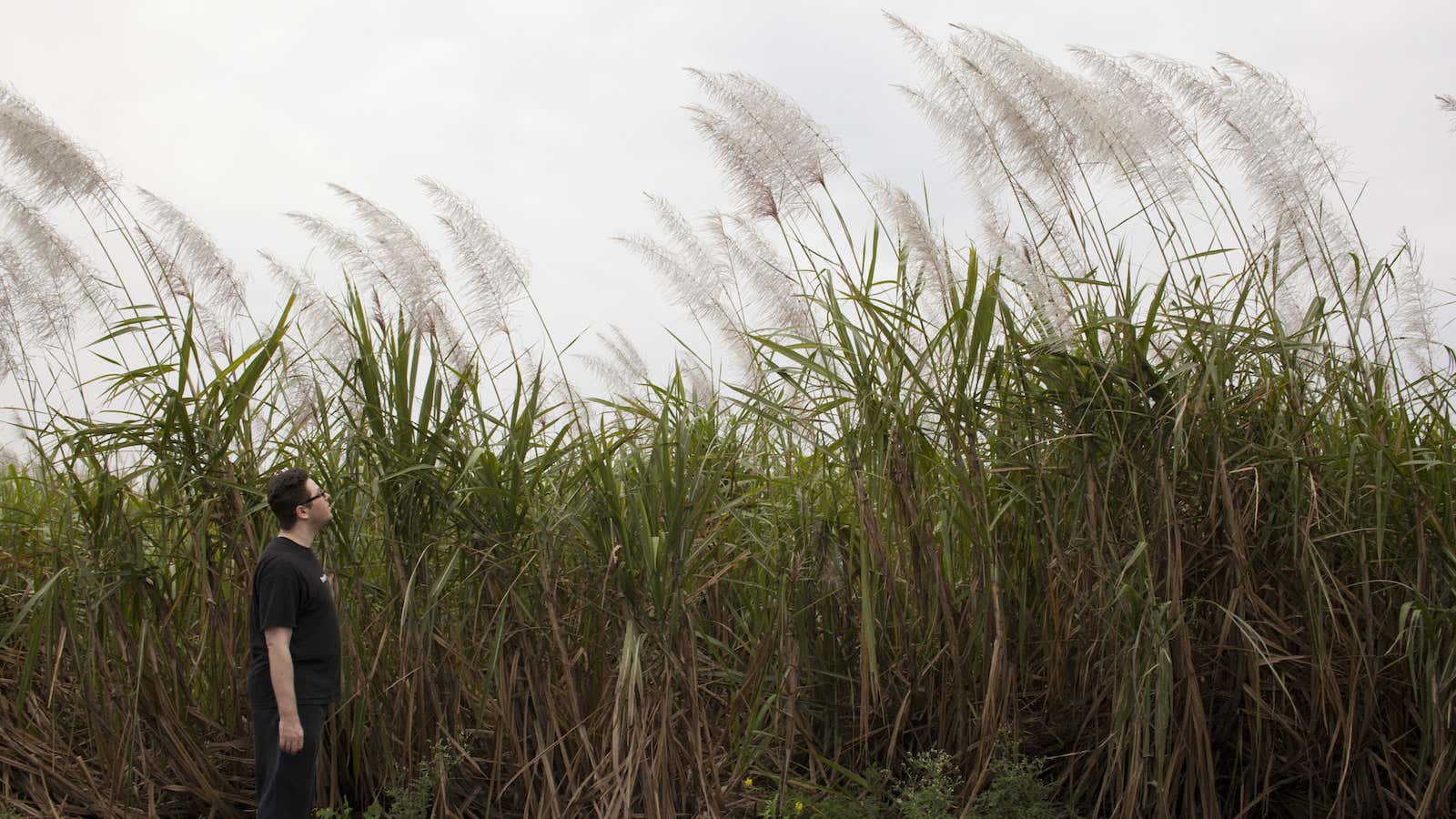Buried in the sugar cane fields of southern Florida, on the southeast corner of Lake Okeechobee, lies a small community called Miracle Village. Here, 52 pale duplexes once housed migrant workers. Now they are home to 110 convicted sex offenders.
Some are fresh out of prison, others have been living there for years. Matthew 25 Ministries, the Christian organization that founded and runs Miracle Village, provides for basic necessities and helps residents apply for food stamps. When each new resident arrives, tradition holds that his neighbors drop by with gifts of groceries. It’s not easy to find work with a felony on the public record.
Photographed and interviewed over many months in 2013 and 2014 by photographer Sofia Valiente for her World Press Photo-winning book, Miracle Village, 12 residents of this isolated colony have agreed to tell their own stories.
In the introduction, 37-year-old resident Joseph Steinberg describes his community:
There’s a certain smell to the air. Like cotton candy and smoke. Sugarcane fields cover the landscape in every direction as far as the eye can see. Three miles down the road and right beside a private village, there are train tracks. Locomotives ride the rails at the midnight hours. Their turbines echo through this village. The people who live there don’t mind the early morning call of the sugar-cane express. To them it sounds like progress. And they love that sound.
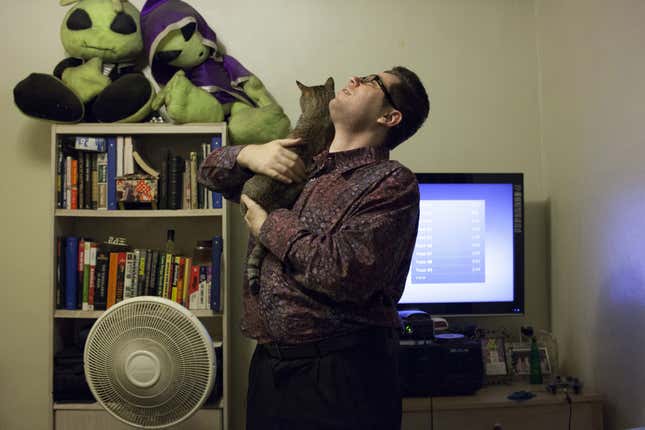
Miracle Village was founded as a refuge for sex offenders in 2009. “The prison-fellowship & ex-offender re-entry ministry turned the run-down, sin-filled, half-abandoned village into a safe-haven for the residents,” says the Matthew 25 Ministries’ website. “Now, the Village is a thriving community where retired sugar-cane workers and ex-offenders rebuilding their lives live in friendship and God’s love.”
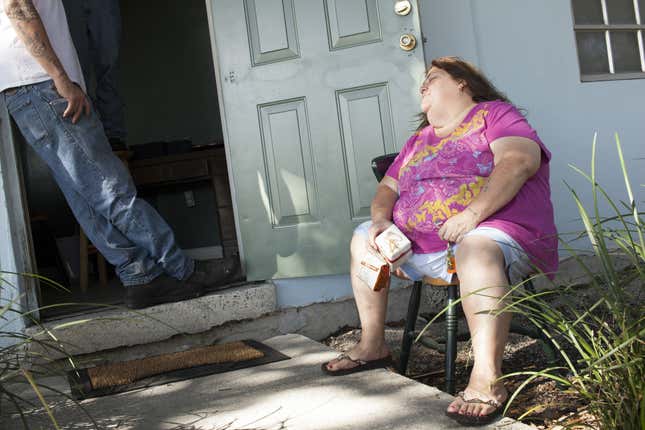
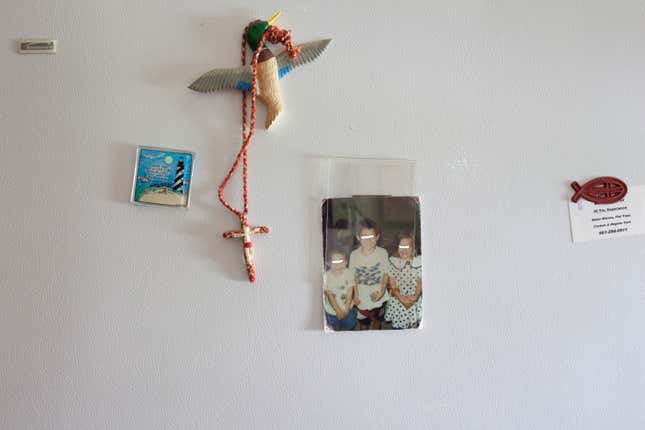
Usually referred by prison chaplains and officers, residents rent their duplexes for $500 per month. They may stay as long as they want. Here, in theory, they will relearn life skills lost while incarcerated, and reintegrate into society at their own pace. But Florida law prohibits sex offenders from living less than 1,000 feet from any place that children congregate, so Miracle Village is still deeply isolated: five miles from the nearest town.
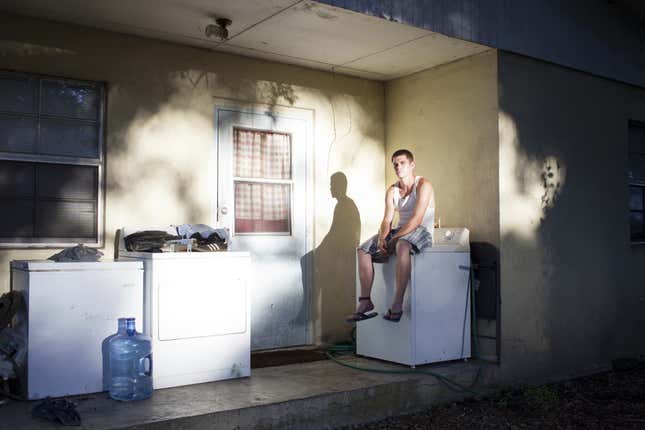
“I like living at Miracle Village,” says Doug, 25, one of the youngest residents. “I have a room and a key and real friends that care about me.” All the same, this is not a particularly lenient place; state surveillance of released sex offenders is designed to reach everywhere.
Florida’s curfew for sex offenders is 10pm, and a few Miracle Village residents must be home by 7pm. Some wear GPS trackers, while others are prohibited from using the internet and smartphones. Like all US sex offenders, Miracle Village residents must register and regularly update their home addresses with local state corrections and law enforcement departments. They will remain registered until a full year after they die.
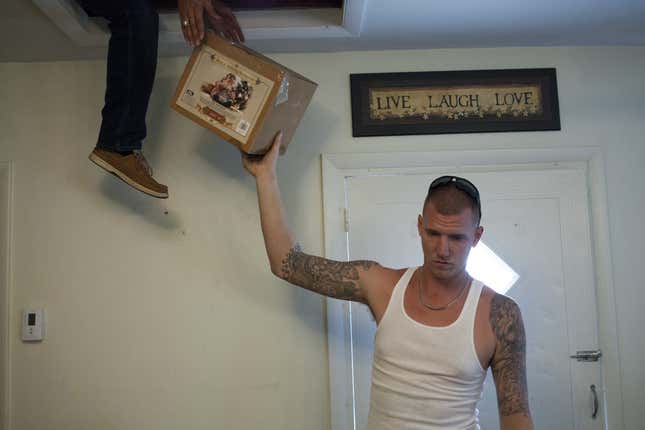
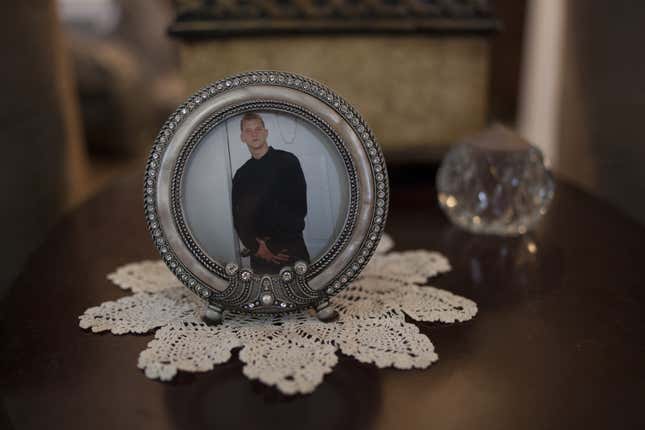
Originally known as “Miracle Park,” the community’s name was changed after law enforcement officials protested that sex offenders may not live near parks.
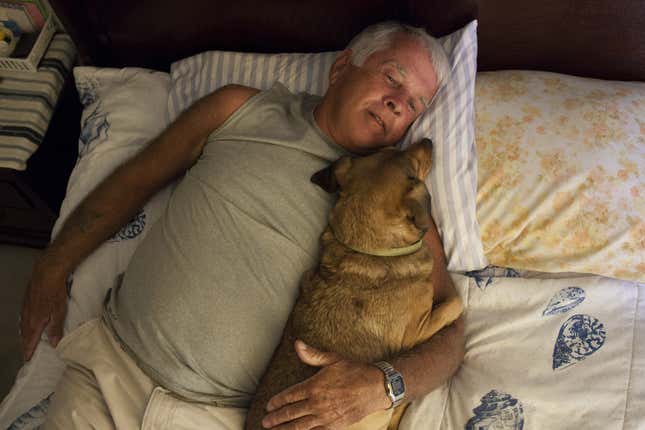
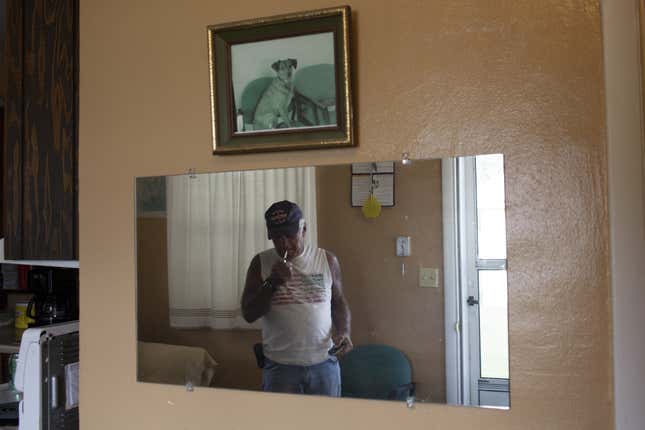
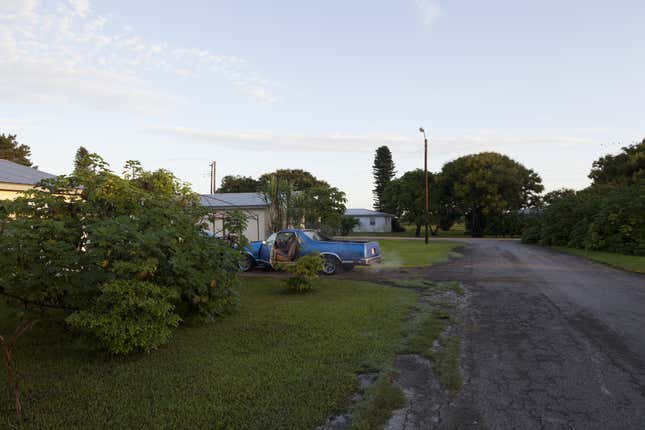
The rate of recidivism for sexual offenders is lower than that of most other crimes (pdf). But ever since the 2013 rape and murder of 8-year-old Cherish Periwinkle by a released sex offender in Jacksonville, Florida state legislation on sex offenses have become among the strictest in the nation.
Local sex offenders’ prison sentences can no longer be abridged for good behavior. Even after prison, offenders may be forced into indefinite periods of confinement called “civil commitment.” Tracey, 47, came to Miracle Village from a privately-operated civil commitment center in Arcadia, Florida.
While the number of sex offenders registered across the US has risen 23% over the past five years, sex crimes seem to be most aggressively identified and punished in Florida, where registrations have leapt 74%. More than 100 new sex offenders apply for a spot every day, says Miracle Village’s website. The community has renamed itself accordingly: in Jul. 2014, humble Miracle Village became the City of Refuge.
